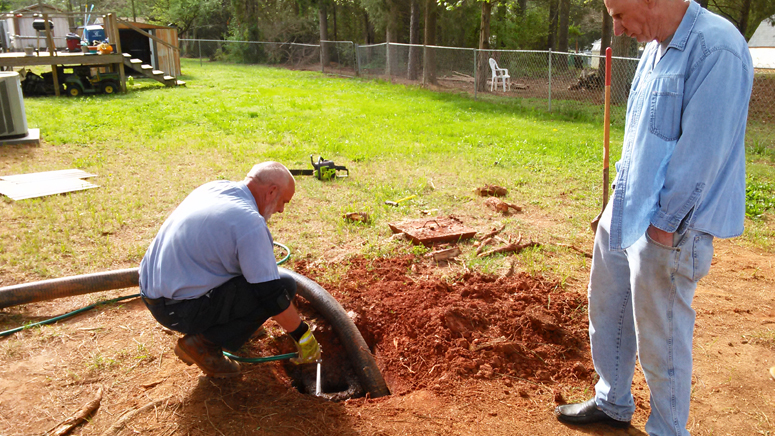This news item expired on Thursday, March 31, 2016 so the information below could be outdated or incorrect.
 Don't put the following down your sink drain:
Don't put the following down your sink drain:
- No grease - fats, butter, wax, cheese, heavy cream.
- No liquid wastes - pesticides, drain cleaners, household chemicals, paints, paint thinners, solvents, oils
- No coffee grounds or excess food waste.
Don't flush the following down your toilet:
- No plastic - wrappers, condoms, band-aids, feminine products, etc.
- No paper (other than toilet tissue) - baby wipes, paper towels, facial tissues, napkins, gauze, dental floss, matches
- No medicines, coffee grounds, cigarettes, leftover food, hair clippings, kitty litter/pet waste, grease, oil, solvents.
- Easy to remember rule: Don't flush anything except human waste and toilet tissue.
More tips to keeping your septic system happy and healthy:
- Every three to five years, a septic system should be professionally pumped in order to remove solids from the tank. Without regular pumping, solids can spill into the leach field and clog the soil. These time guidelines apply when a family of four is residing in a house full time. Vacation home systems will need to be pumped less frequently; large families who use more water may need to pump their systems more often.
The following symptoms can indicate a system is beginning to experience difficulties:
- Plumbing systems might drain slowly or backup. Interior lines should be checked first before looking into the sewage disposal system.
- Discharge from washing machines, dishwashers, and bathtubs could backup or overflow over the septic tank or field. When this occurs after a heavy rain, the septic system is especially suspect.
- Foul odors in catch-basins or storm drains could indicate that sewage is entering groundwater, either from the home or a neighboring property's system.
There are certain landscaping precautions a homeowner should make in a yard that contains a septic system:
- Trees should be planted at least 100 feet away from the septic system, particularly trees with wide-spread shallow roots.
- Landscaping, foundation drains, and roof gutters should be planned to divert water away from the septic system.
- It is important to plant grass over the septic system and leach field to prevent soil erosion.
Septic systems aren't maintenance free, but, in most cases, with regular, simple maintenance, septic systems will provide a lifetime of reliable use to homeowners.
Information provided in part by the North Carolina Department of Environmental Health.